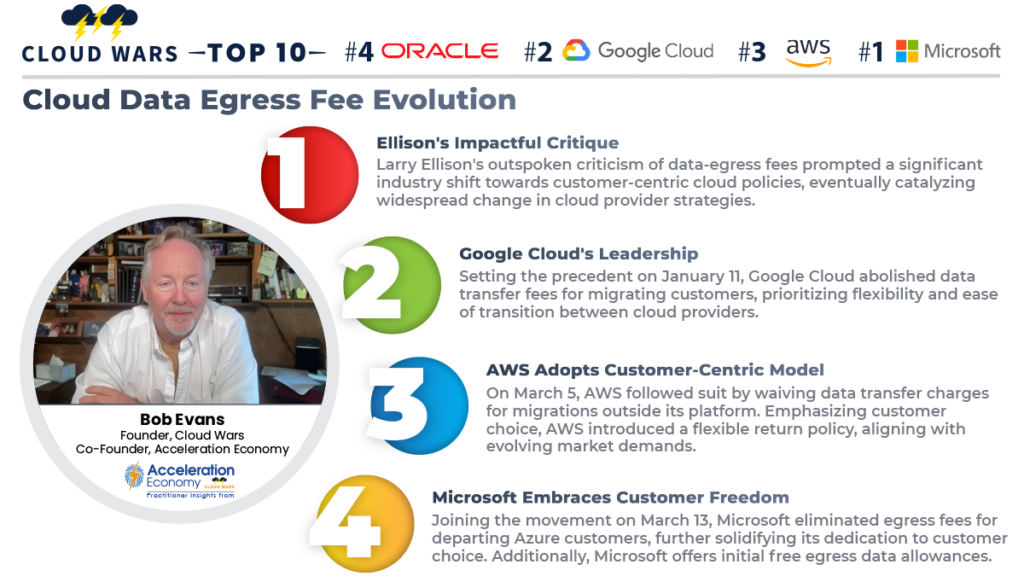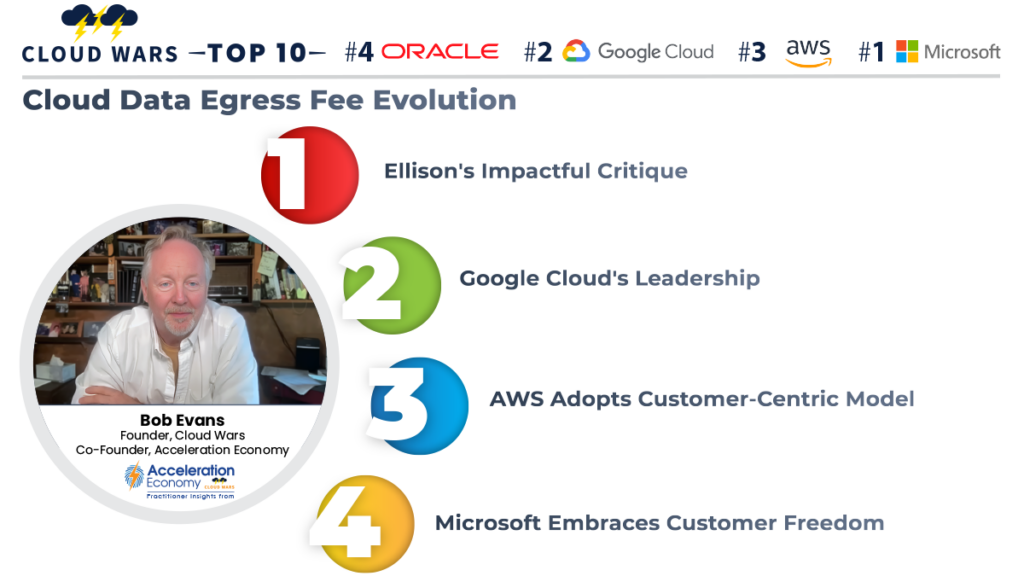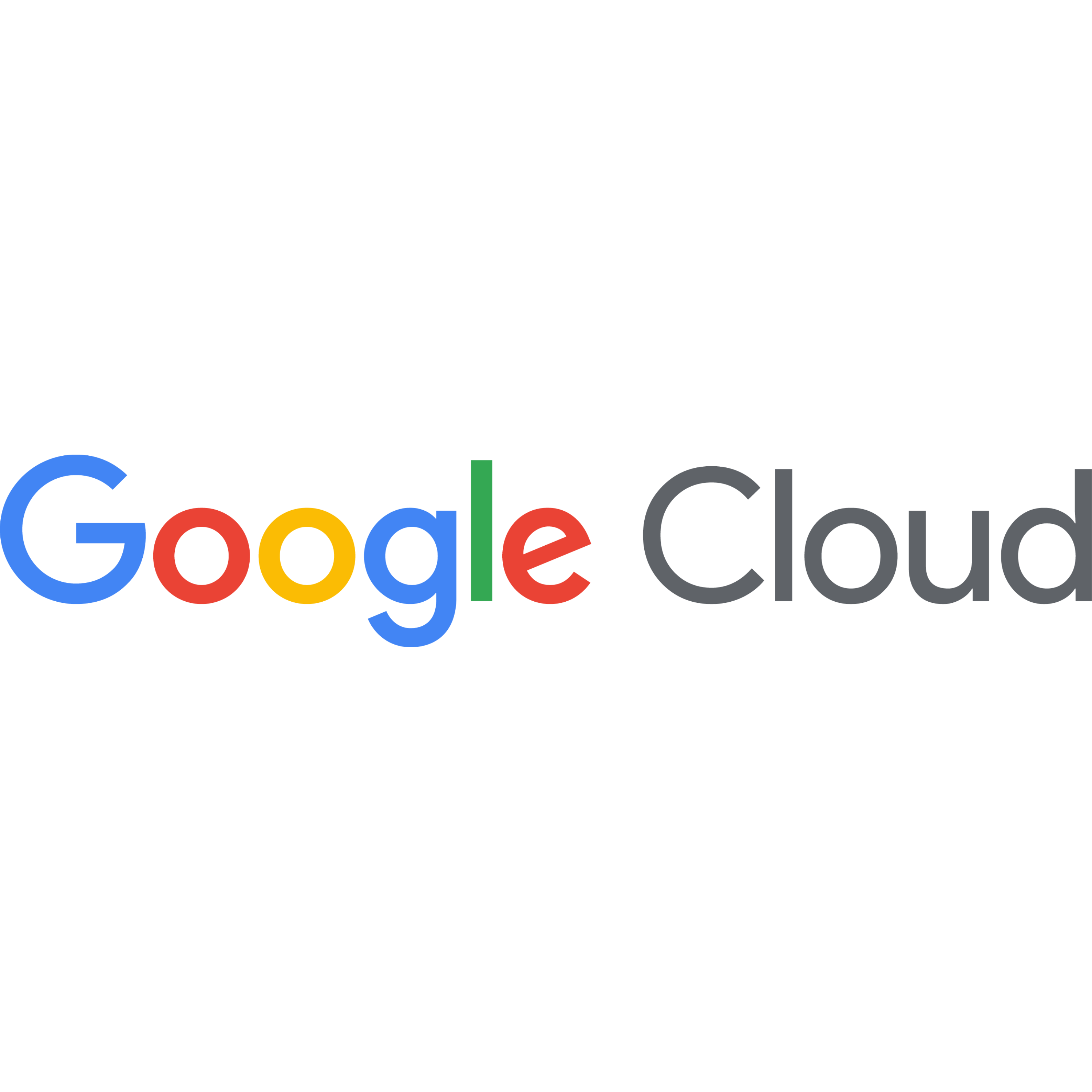
Microsoft’s decision last week to join Google Cloud and Amazon in dropping onerous data-egress fees for customers wanting to move workloads to another cloud is a huge win for business customers as well as a resounding TKO for Oracle chairman Larry Ellison, who 18 months ago began publicly ridiculing the old model of “walled gardens.”
Ellison first called out the egress-fee bully at Oracle’s CloudWorld event in October 2022 and has been a relentless and unflinching critic of the egress fees ever since. At the time, I was impressed with the boldness of Ellison’s customer-centric stance and dug into that in an analysis called “Larry Ellison on Rise of ‘Internet of Clouds,’ Fall of Walled Gardens.”
Back when he first raised the issue, he not only criticized the “walled gardens” that are the inevitable result of significant egress fees but also intensified his efforts to create the industry’s first viable alternative, which has now blossomed into the landmark Oracle-Microsoft multi-cloud partnership. (For more perspective on that, please see my analysis from Nov. 2023 headlined “The Larry and Satya Show: Microsoft, Oracle Rewire the Business World.”)
As you can see, I’m giving Ellison a TKO — a technical knock-out — on this rather than a pure knockout because he did have some help from — and it pains me to say this — the European Union and its upcoming data legislation and mandates. I’ve added some detail on that at the bottom of this article.
As the other big cloud providers came to realize that business customers looking to build the AI-powered digital enterprises of the future are simply unwilling to tolerate some of the cloud-vendor policies of the past, first Google Cloud and then AWS and now Microsoft all tossed their data-egress fees onto the ash heap of cloud-industry history.
Here’s how each of those hyperscalers presented their new positions to the public, with the three major shifts in policy all happening within a two-month period.
Ask Cloud Wars AI Agent about this analysis
Google Cloud, January 11: In a blog post, the GM and vice-president of Google Cloud Platform, Amit Zavery, took a very customer-centric approach when he wrote, “When customers’ business needs evolve, the cloud should be flexible enough to accommodate those changes. Starting today, Google Cloud customers who wish to stop using Google Cloud and migrate their data to another cloud provider and/or on-premises, can take advantage of free network data transfer to migrate their data out of Google Cloud. This applies to all customers globally. You can learn more here. Eliminating data transfer fees for switching cloud providers will make it easier for customers to change their cloud provider….” Well done, Google Cloud!
AWS, March 5: About eight weeks later, cloud-infrastructure kingpin AWS followed suit with an announcement proclaiming that because AWS is such a big believer in giving customers lots of alternatives, “We believe this choice must include the one to migrate your data to another cloud provider or on-premises. That’s why, starting today, we’re waiving data transfer out to the internet (DTO) charges when you want to move outside of AWS.” Then hinting at the stick positioned not so far from the carrot, AWS added, “We don’t require you to close your account or change your relationship with AWS in any way. You’re welcome to come back at any time. We will, of course, apply additional scrutiny if the same AWS account applies multiple times for free DTO.” Then going back to full carrot, AWS declared, “We believe in customer choice, including the choice to move your data out of AWS.” Well done, AWS!
Microsoft, March 13: And just 8 days after the AWS announcement, the world’s largest and most-influential cloud provider made it unanimous by disclosing that its data-egress fees had gone the way of the floppy disk. “We support customer choice, including the choice to migrate your data away from Azure. Azure now offers free egress for customers leaving Azure when taking their data out of the Azure infrastructure via the internet to switch to another cloud provider or an on-premises data center. Azure already offers the first 100GB/month of egressed data for free to all customers in all Azure regions around the world.” Well done, Microsoft!
And well done, Larry Ellison!

Final Thought
Now, while I believe that businesspeople fully immersed in the free market drive almost infinitely more innovation and value than do bureaucrats and regulators, I must nevertheless also (grudgingly) acknowledge the role that the European Union has played with its European Data Act.
A press release issued in January about that Data Act includes this perspective: “Furthermore, the Data Act will allow customers to switch seamlessly (and eventually free of charge) between different cloud providers. These measures will promote competition and choice on the market while preventing vendor lock-in. For instance, any European enterprise could combine data services from different cloud providers (“multi-cloud”) and benefit from the vast opportunities in the EU cloud market. It will also drastically reduce costs for businesses and administrations when they move their data and applications to a different cloud provider.”
By the way: Perhaps it’s just a coincidence (I don’t believe in coincidence), but that press release is dated January 11 — the exact same day Google Cloud stepped forward to be the first of the three original hyperscalers (Oracle is now the fourth) to ditch data-egress fees.
But the press release also says the European Data Act “will become applicable” about 18 months from now on Sept. 12, 2025, so it appears that Google Cloud and AWS and Microsoft wanted to get out ahead of the timeline by dropping their data-egress fees.
I also suspect that Larry Ellison’s public shaming of that policy played an enormous role in driving those changes.
All in all, this is yet another huge win for customers in the Cloud Wars.

Register for Acceleration Economy’s Cloud Wars CEO Outlook 2024 Course, now available. Featuring exclusive interviews on strategy, AI, and customers with the CEOs of Cloud Wars Top 10 companies.
.













